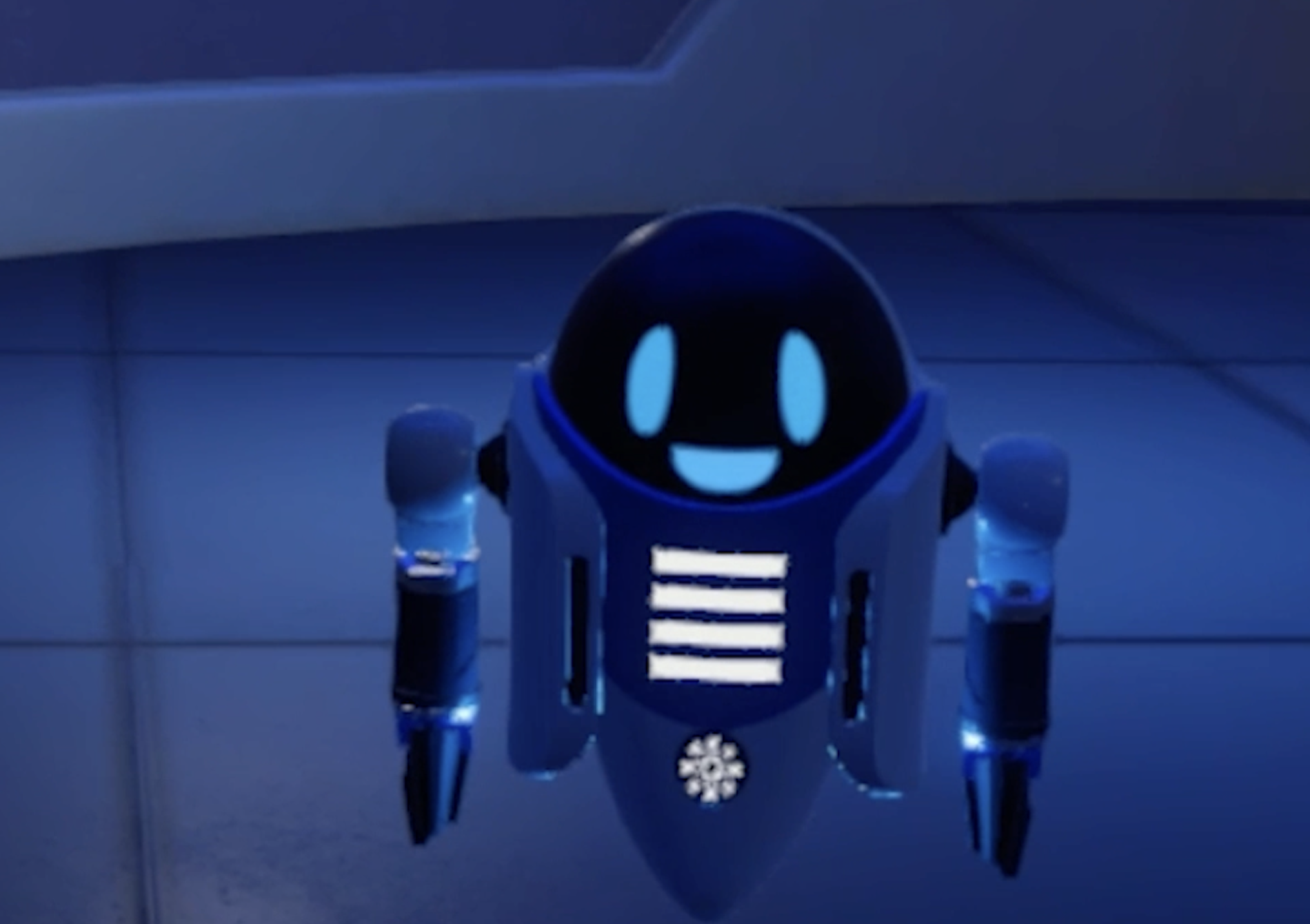The Science-based Science Fiction of Europa Prime
By Teon Edwards
Developed by a neurodiverse team of student interns from Landmark College, a college designed exclusively for students who learn differently, including students with a learning disability (such as dyslexia), ADHD, autism, or executive function challenges, and professional educators from EdGE at TERC, Europa Prime* is a science-based science fiction game.
Europa Prime takes players somewhere they can’t otherwise go—across the solar system and into the future—where science and science fiction blend together. Some examples:
- Europa is real. It’s an icy moon of Jupiter.
- The station is fictional. There is no base station on Europa.
- Evidence suggests Europa has a vast, subsurface ocean of liquid water, but this isn’t know for sure.
- Minos, the main alien lifeforms within the game, don’t exist. Earth is the only place in the entire universe known to have life.
- Europa is a strong candidate for the possibility of life beyond Earth. NASA’s Europa Clipper mission its way there right now to investigate whether or not it actually has the conditions necessary to support like.
- Etc.
Players are challenged to engage with puzzles and tasks where they may know, not know, or only think they know what is factual and what is fiction, while immersed in an experience designed to be comfortable and supportive for a broad audience, including players with sensory, attention, and/or social differences.
That broad audience is important for science and thus science learning. Varied approaches, perspectives, and skills are important to tackling complex science explorations, such as the search for life beyond Earth. And Europa Prime exposes players, including players who think differently, to an intriguing glimpse into what we know, what evidence suggests, and what we might speculate about Europa and astrobiology, the science of life in the universe.
To help those who are interested in exploring what’s science and what’s science fiction within Europa Prime, TERC created a ThingLink interactive. In small, bite-size bits, it shares information about the science concepts in the game, as well as some of the speculative sci-fi elements.
The fiction may change, but the science is real… and it’s just getting started. With different minds as part of the adventure, we’ll go further and learn more than we can currently imagine.
* Europa Prime was developed as part of the NSF project Broadening Participation in Informal STEM Learning for Autistic Learners and Others through Virtual Reality (#2005447). The intent was to engage a broad audience, including players with sensory, attention, and/or social differences, in informal science exploration through a fun, immersive virtual reality (VR) experience.
Developed by a neurodiverse team of student interns from Landmark College, a college designed exclusively for students who learn differently, including students with a learning disability (such as dyslexia), ADHD, autism, or executive function challenges, and professional educators from EdGE at TERC, Europa Prime* is a science-based science fiction game.
Europa Prime takes players somewhere they can’t otherwise go—across the solar system and into the future—where science and science fiction blend together. Some examples:
- Europa is real. It’s an icy moon of Jupiter.
- The station is fictional. There is no base station on Europa.
- Evidence suggests Europa has a vast, subsurface ocean of liquid water, but this isn’t know for sure.
- Minos, the main alien lifeforms within the game, don’t exist. Earth is the only place in the entire universe known to have life.
- Europa is a strong candidate for the possibility of life beyond Earth. NASA’s Europa Clipper mission its way there right now to investigate whether or not it actually has the conditions necessary to support like.
- Etc.
Players are challenged to engage with puzzles and tasks where they may know, not know, or only think they know what is factual and what is fiction, while immersed in an experience designed to be comfortable and supportive for a broad audience, including players with sensory, attention, and/or social differences.
That broad audience is important for science and thus science learning. Varied approaches, perspectives, and skills are important to tackling complex science explorations, such as the search for life beyond Earth. And Europa Prime exposes players, including players who think differently, to an intriguing glimpse into what we know, what evidence suggests, and what we might speculate about Europa and astrobiology, the science of life in the universe.
To help those who are interested in exploring what’s science and what’s science fiction within Europa Prime, TERC created a ThingLink interactive. In small, bite-size bits, it shares information about the science concepts in the game, as well as some of the speculative sci-fi elements.
The fiction may change, but the science is real… and it’s just getting started. With different minds as part of the adventure, we’ll go further and learn more than we can currently imagine.
* Europa Prime was developed as part of the NSF project Broadening Participation in Informal STEM Learning for Autistic Learners and Others through Virtual Reality (#2005447). The intent was to engage a broad audience, including players with sensory, attention, and/or social differences, in informal science exploration through a fun, immersive virtual reality (VR) experience.

10/14/2025
AuthorTeon Edwards is the director and a co-founder of EdGE at TERC. Her current work focuses on the use of virtual reality and other technologies to design and develop inclusive STEM learning experiences, with a particular focus on neurodiversity and sensory, attention, and social differences.
SummaryTeon Edwards explains a tool that helps learners explore what’s science and what’s science fiction in the VR experience Europa Prime.
Share This Page: